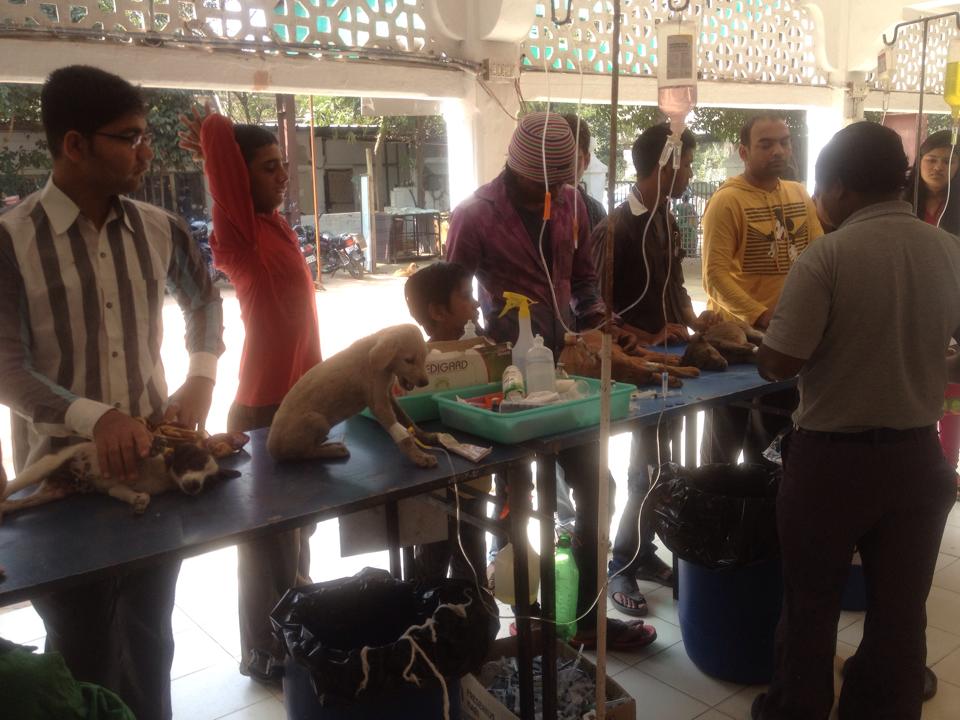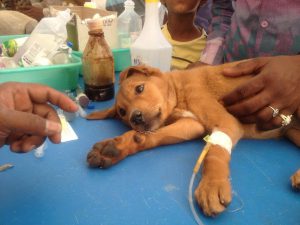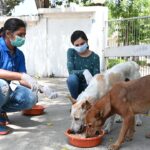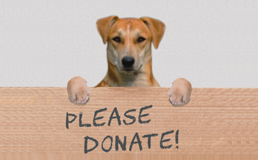Innumerable Cases of PARVOVIRUS got to JCT’s Hospital!

Parvovirus has hit the city dogs. And they have been coming in for treatment in a large number at our Hospital.
We have over 30 cases of dogs that are infected by parvovirus every single day!
What is Parvovirus??
Canine parvovirus is a highly contagious viral disease that can produce a life-threatening illness. The virus attacks rapidly dividing cells in a dog’s body, most severely affecting the intestinal tract. Parvovirus also attacks the white blood cells, and when young animals are infected, the virus can damage the heart muscle and cause lifelong cardiac problem or can even prove to be fatal for the animal.
What Are the General Symptoms of Parvovirus?
The general symptoms of parvovirus are lethargy, severe vomiting, loss of appetite and bloody, foul-smelling diarrhea that can lead to life-threatening dehydration.
How Is Parvovirus Transmitted?
Parvovirus is extremely contagious and can be transmitted by any person, animal or object that comes in contact with an infected dog’s feces. Highly resistant, the virus can live in the environment for months, and may survive on inanimate objects such as food bowls, shoes, clothes, carpet and floors. It is common for an unvaccinated dog to contract parvovirus from the streets, especially in urban areas where there are many dogs.
Which Dogs Are Prone to Parvovirus?
Puppies, adolescent dogs and canines who are not vaccinated are most susceptible to the virus.
How Can Parvovirus Be Treated?
Although there are no drugs available that can kill the virus yet, treatment is generally straightforward and consists of aggressive supportive care to control the symptoms and boost your dog’s immune system to help him win the battle against this dangerous disease. Dogs infected with parvovirus need intensive treatment in a veterinary hospital, where they receive antibiotics, drugs to control the vomiting, intravenous fluids and other supportive therapies. Should your dog undergo this treatment, the average hospital visit is about 5-7 days.
Please note that treatment is not always successful-so it’s especially important to make sure your dog is vaccinated.








